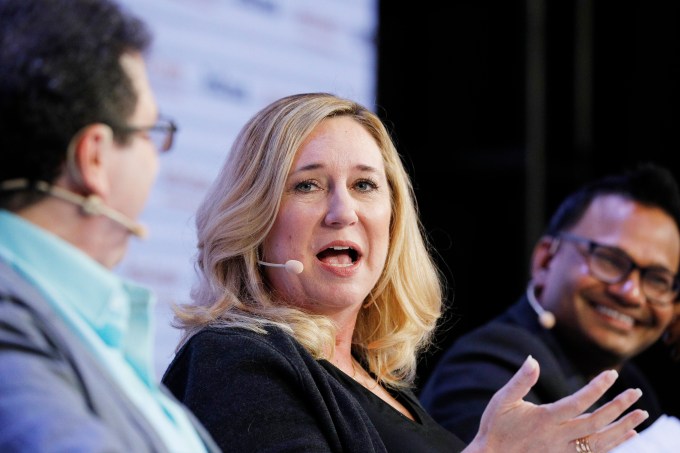Top VCs, founders share how to build a successful SaaS company
Last week at TechCrunch Disrupt in San Francisco, we hosted a panel on the Extra Crunch stage on “How to build a billion-dollar SaaS company.” A better title probably would have been “How to build a successful SaaS company.”
We spoke to Whitney Bouck, COO at HelloSign; Jyoti Bansal, CEO and founder at Harness, and Neeraj Agrawal, a partner at Battery Ventures to get their view on how to move through the various stages to build that successful SaaS company.
While there is no magic formula, we covered a lot of ground, including finding a product-market fit, generating early revenue, the importance of building a team, what to do when growth slows and finally, how to resolve the tension between growth and profitability.
Finding product-market fit
Neeraj Agrawal: When we’re talking to the market, what we’re really looking for is a repeatable pattern of use cases. So when we’re talking to prospects — the words they use, the pain point they use — are very similar from call to call to call? Once we see that pattern, we know we have product-market fit, and then we can replicate that.
Jyoti Bansal: Revenue is one measure of product-market fit. Are customers adopting it and getting value out of it and renewing? Until you start getting a first set of renewals and a first set of expansions and happy successful customers, you don’t really have product-market fit. So that’s the only way you can know if the product is really working or not.
Whitney Bouck: It isn’t just about revenue — the measures of success at all phases have to somewhat morph. You’ve got to be looking at usage, at adoption, value renewals, expansion, and of course, the corollary, churn, to give you good health indicators about how you’re doing with product-market fit.
Generating early revenue
Jyoti Bansal: As founders we’ve realized, getting from idea to early revenue is one of the hardest things to do. The first million in revenue is all about street fighting. Founders have to go out there and win business and do whatever it takes to get to revenue.
As your revenue grows, what you focus on as a company changes. Zero to $1 million, your goal is to find the product-market fit, do whatever it takes to get early customers. One million to $10 million, you start scaling it. Ten million to $75 million is all about sales, execution, and [at] $75 million plus, the story changes to how do you go into new markets and things like that.
Whitney Bouck: You really do have to get that poll from the market to be able to really start the momentum and growth. The freemium model is one of the ways that we start to engage people — getting visibility into the product, getting exposure to the product, really getting people thinking about, and frankly, spreading the word about how this product can provide value.

Photo: Kimberly White/Getty Images for TechCrunch
Powered by WPeMatico